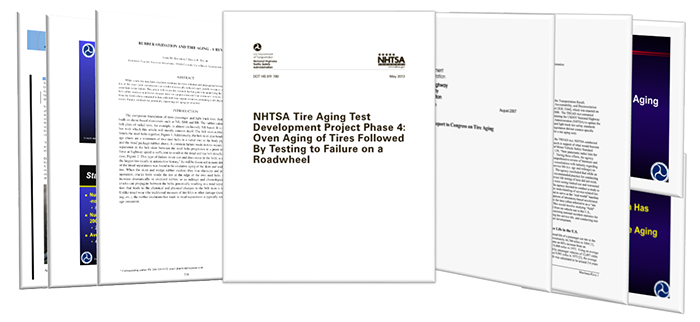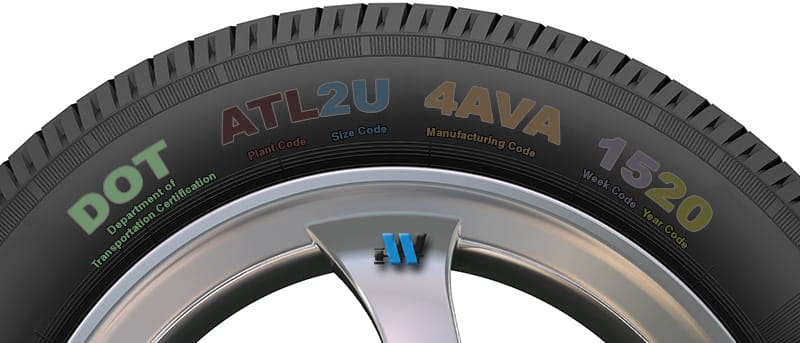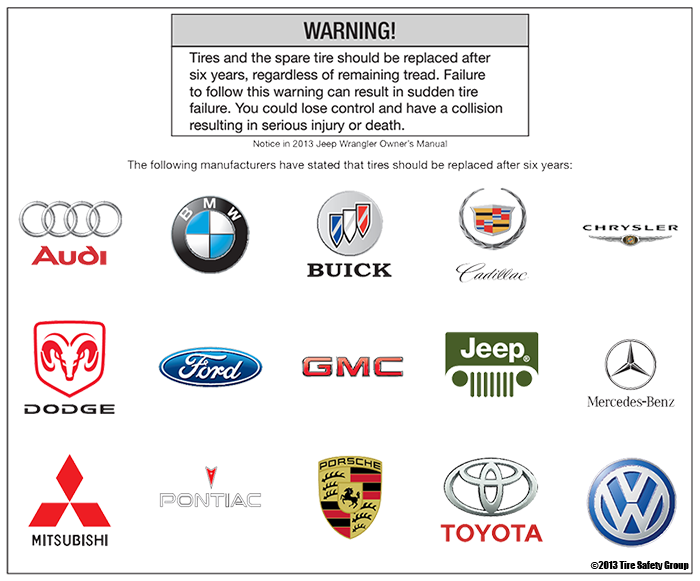Tires Expire in Six Years
Posted by Wetherington Law Firm | Articles
- Articles
- Artificial Intelligence
- Car Accidents
- Class Action Lawsuit
- Comparative Negligence
- Crime Victim
- Defective Vehicles
- Disability
- Kratom Death and Injury
- Legal Marketing
- Motor Vehicle Accidents
- News/Media
- Other
- Pedestrian Accidents
- Personal Injury
- Results
- Sexual Assault
- Truck Accidents
- Uber
- Wrongful Death
Categories
The Evidence Is Clear: Tires Should Have An Expiration Date.
Older tires are substantially more likely to fail than newer ones. This is because tires are made mostly of rubber, and rubber degrades with age. Sunlight, heat, ice, and general wear and tear can accelerate the breakdown of a tire. Once a tire begins to break down, it becomes more likely to fail in the form of a tread separation–often at highway speeds, when the failure is most likely to cause catastrophic injuries or death.
For most tires, this expiration date should be six years from the date of manufacture. Tires age dangerously because of a chemical process commonly referred to as oxidation, which simply means that as the tire components are exposed to oxygen, the oxygen particles cause the flexible components of a tire to harden and become brittle. Over time, the tire will simply fall apart under normal stress, just like an old rubber band. Because this process occurs naturally, it does not matter if a tire is being used, stored as a spare, or simply waiting on a store shelf for an unsuspecting consumer.
In 1973, the average tread life of a passenger car tire was approximately 24,000 miles. Tire tread life has quadrupled over the last forty years and some currently sold tires promise 100,000 miles of tread life. As tread life becomes less of a factor in the service life of a tire, oxidation becomes a more serious concern— particularly in hotter climates, like Texas, Florida, Georgia, and Louisiana which are routinely the hottest states in the United States.
A Large Body of Scientific Literature Supports a Six Year Tire Expiration Date
Numerous studies written by or for the National Highway Traffic Safety Administration support a finding that tires expire in six years.

These studies conclusively conclude the following:
-
Tires begin to weaken and fall apart as they age.
-
The tire aging process happens regardless of whether a tire is on a vehicle or in a temperature-controlled room.
-
Most tires begin to significantly degrade around five years from the date of manufacture.
-
Six years from the date of manufacture, most tires are no longer safe for use on a vehicle.
Expired Tires are a Hidden Hazard
Tire aging is a “hidden hazard” because most consumers don’t know that tires expire in six years and it is difficult for most consumers to tell how old a tire is without deciphering an 11 digit code that is imprinted on the side of the tire. Federal rules mandate that the tire’s D.O.T. code be clearly branded or etched on the side of each tire. For most tires, the D.O.T. number is typically 11 digits. If the tire has only 10 digits, the tire was manufactured before the year 2000. A current D.O.T. number looks like this for a tire made in the fifteenth week of 2020:

As you can imagine, most consumers either do not know that this code exists or do not understand its significance. A 2006 survey showed that only 4% of consumers are aware that tires become more dangerous as they age. A large body of scientific evidence supports that most tires should be replaced six years from the date they are manufactured. This six-year expiration date begins from the day the tire was manufactured at the plant—not the date it was sold to a consumer or the date that it was installed on a vehicle.
Tire Manufacturers Warn that Tires Expire in Six Years
Many auto manufacturers have taken small steps to warn consumers by placing warnings within the owner’s manual of newer model vehicles. However, due to the cryptic code tire manufacturers use on tires, the warnings are of only limited use to consumers. Nonetheless, the following manufacturers have issued warnings on 2013 and newer vehicles about tire aging:

Sadly, these warnings are not retroactively provided to consumers who own older model vehicles that are more likely to have aged or expired tires.